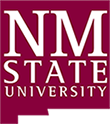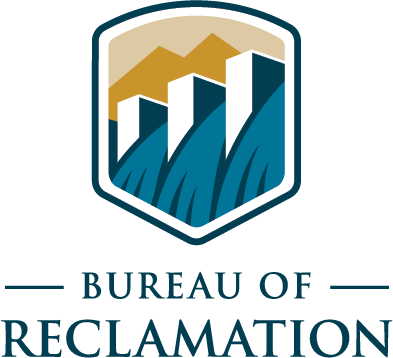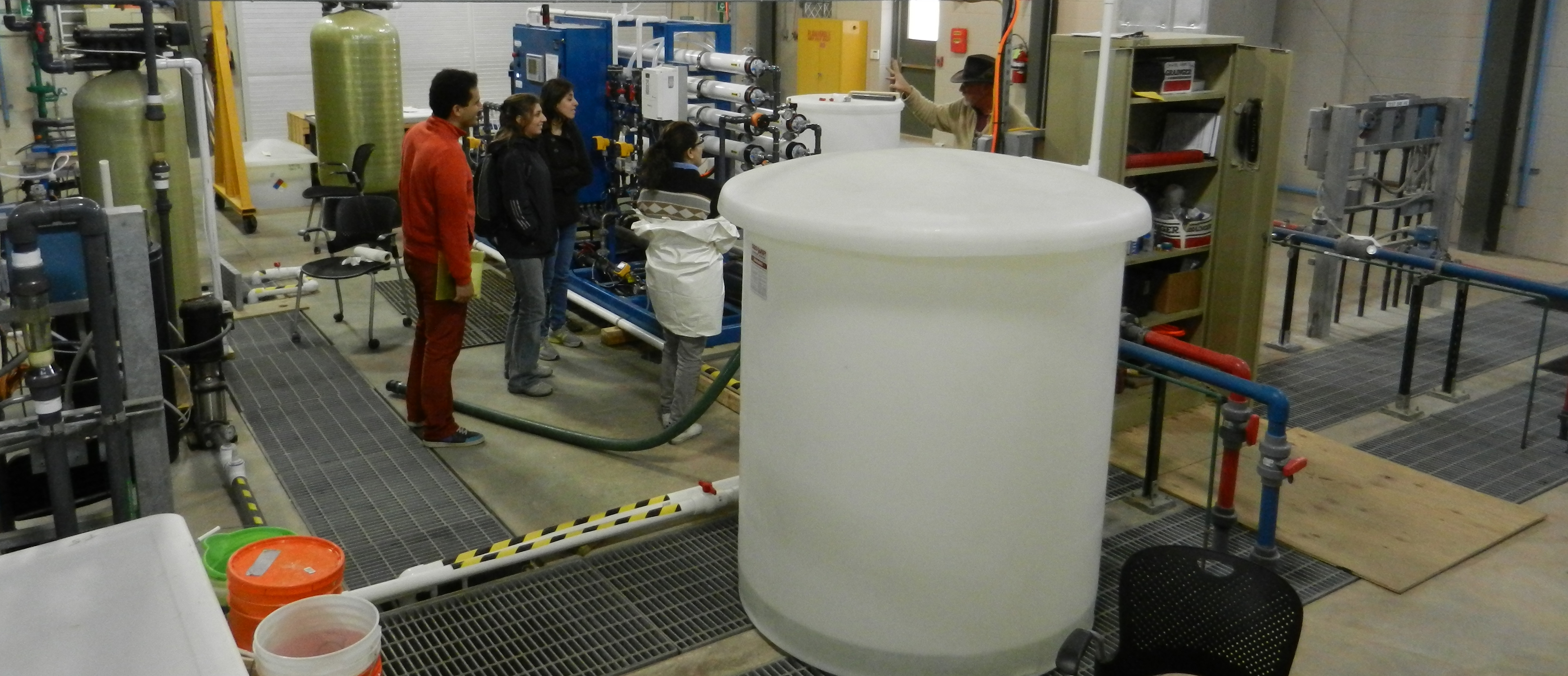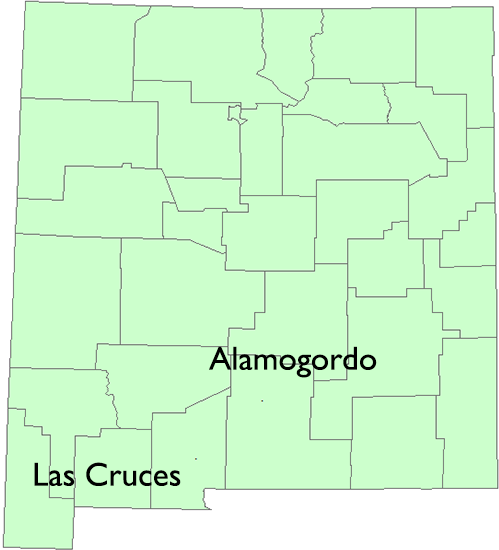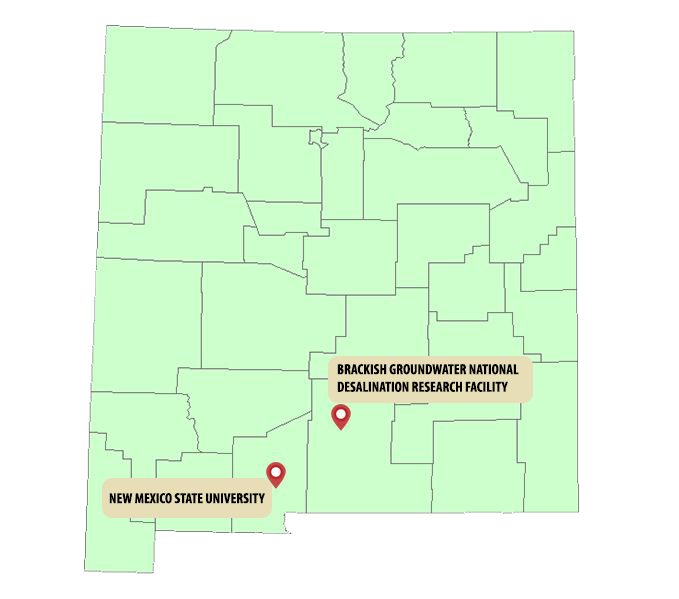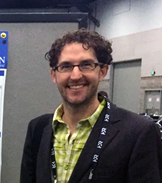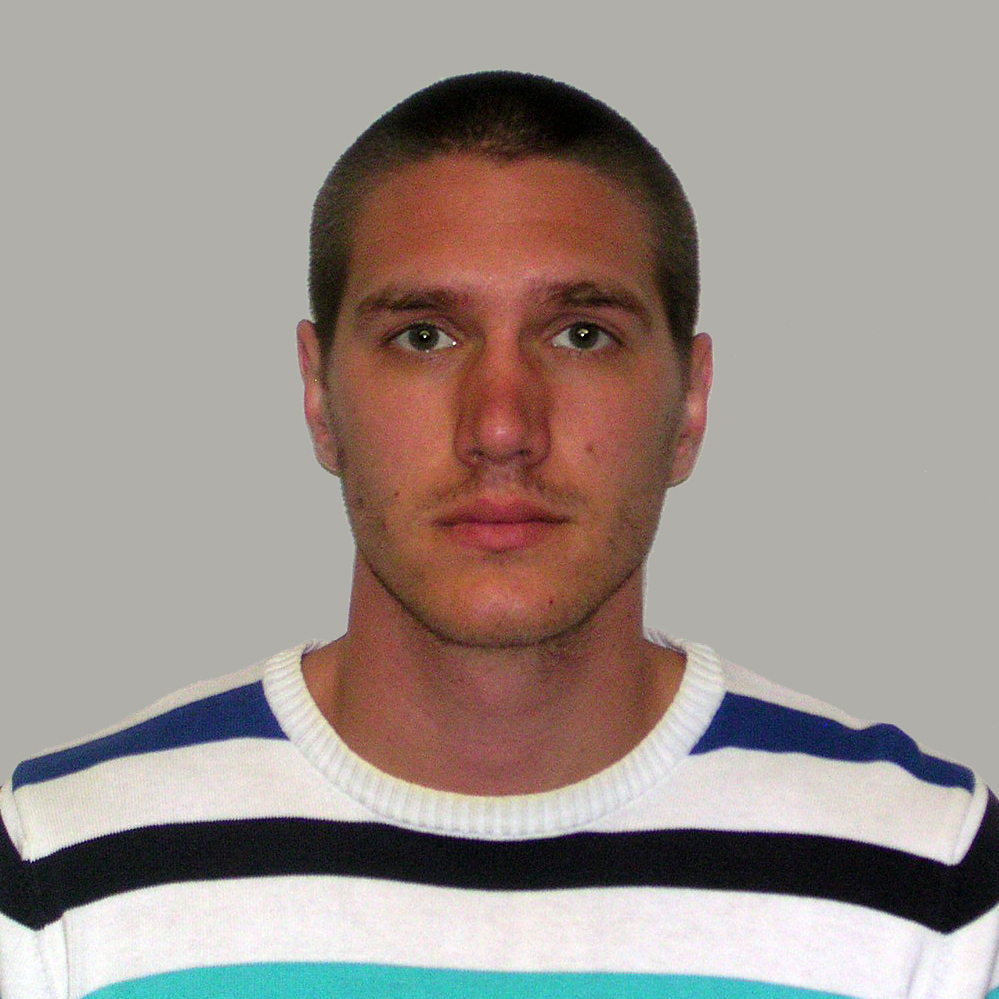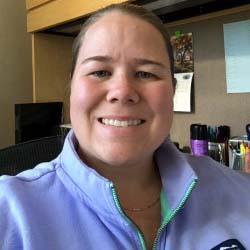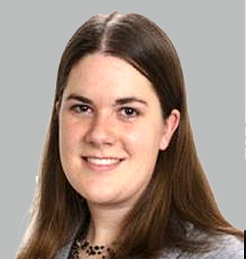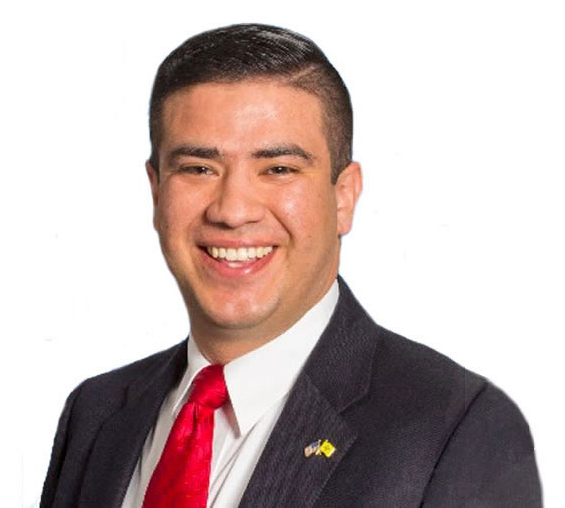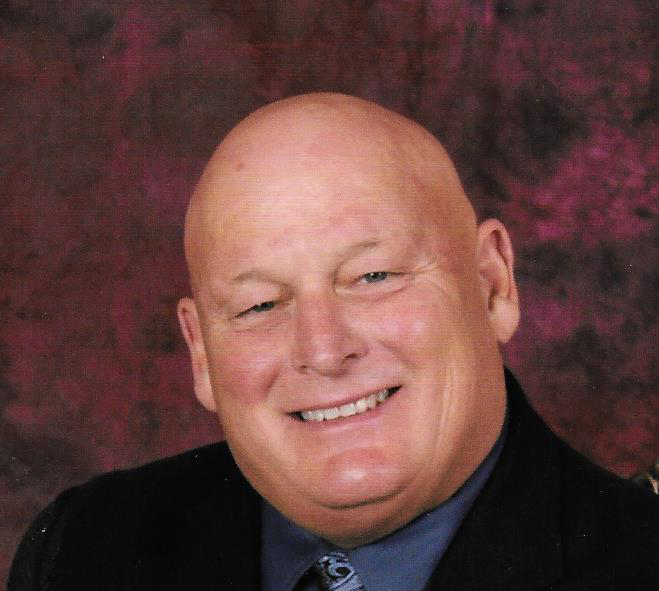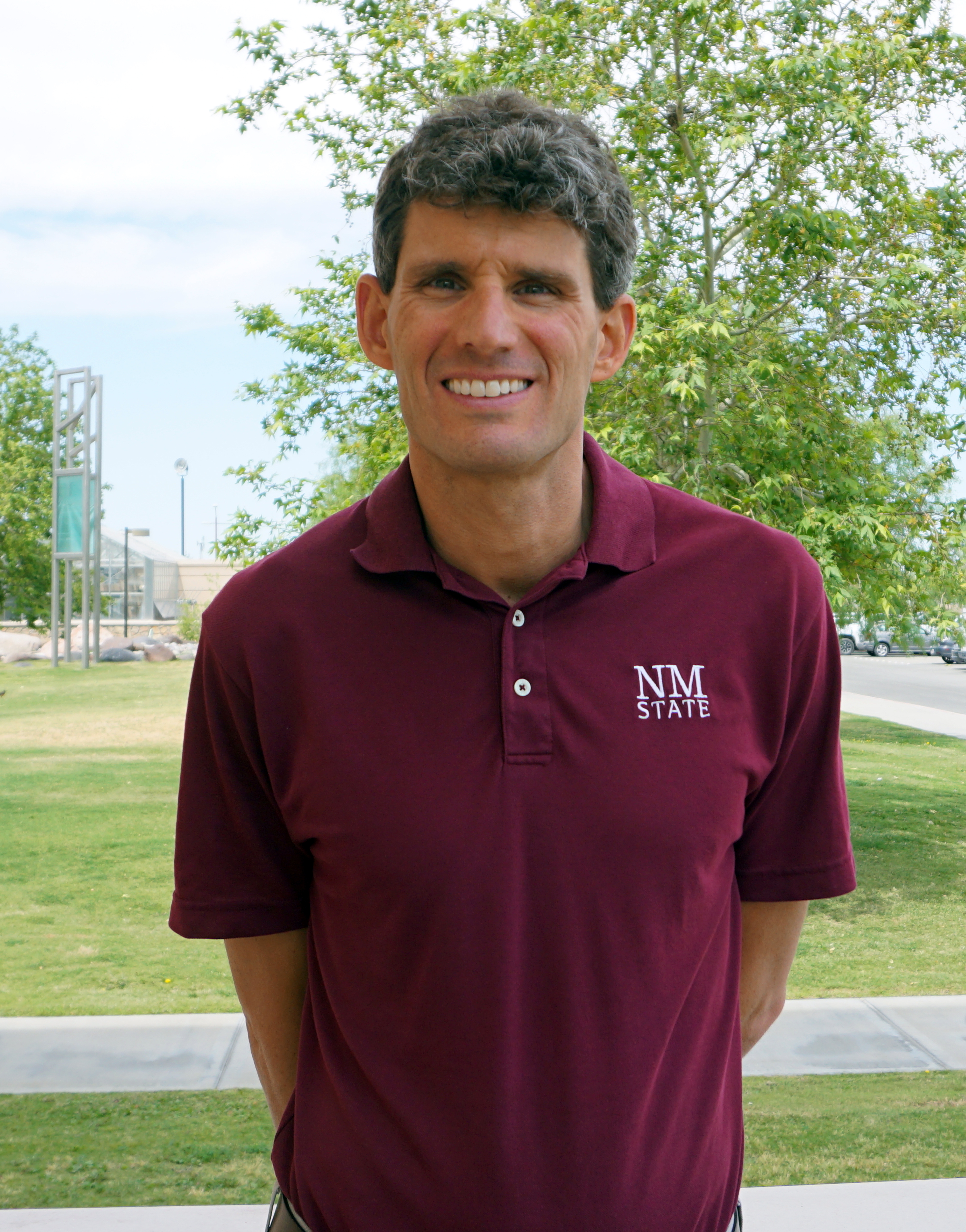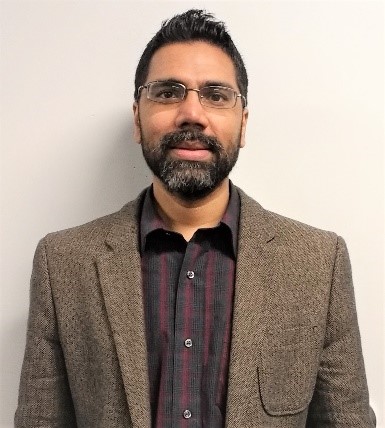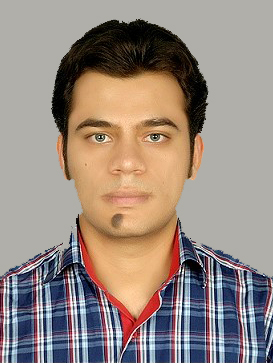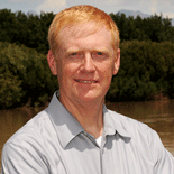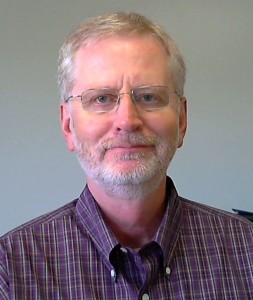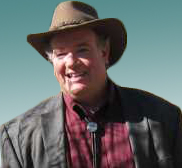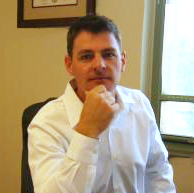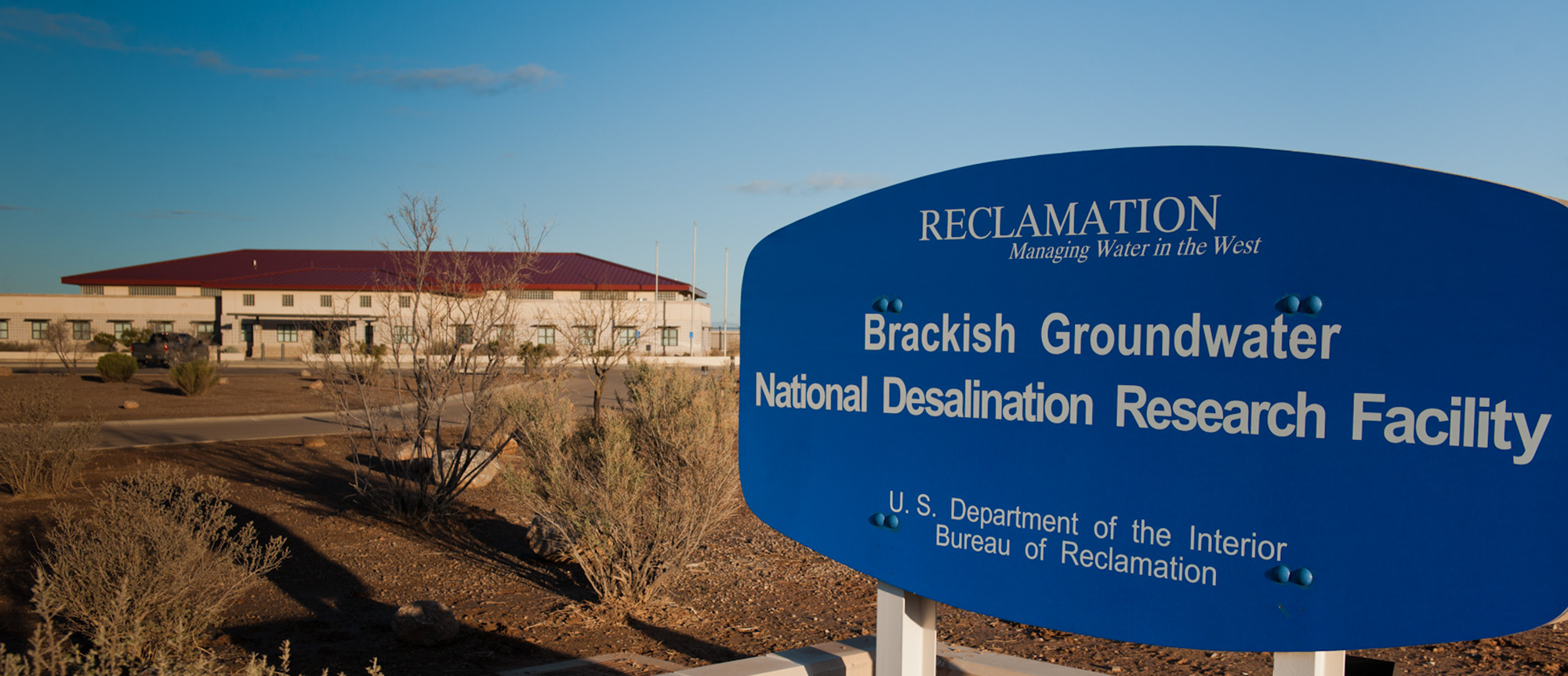 |
|
Brackish Groundwater National Desalination Research FacilityAlamogordo, New Mexico
BGNDRF is a Bureau of Reclamation facility that opened in 2007 to develop technologies for the desalination of brackish and impaired water found in inland states. |
|
FOCUSConcentrate management |
|
Desalination Technologies - Randy Shaw, Facility Manager, Brackish Groundwater Natural Desalination Research Facility
From KRWGNews in Las Cruces
Current and Upcoming Clients at
the Brackish Groundwater National Desalination Research Facility (BGNDRF)
Current Clients
- University of North Texas (Dr. Miguel Acevedo) – Wind and Solar Energy for Desalting Water for Potable and Agricultural Use
- LG Chem (Dr. Eugene Rozenbaoum) – Characterization of Thin Film Nanocomposite Brackish Water RO membranes
- NMSU (Dr. Pei Xu partnered with BGNDRF) – Evaluation of Novel Scaling and Fouling Control Technologies for RO Pretreatment
- Pacific Advanced Civil Engineering (PACE)(Dr. Keisuke Ikehata) – Photobioreactor for RO Concentrate Treatment for Second Stage RO
- NMSU (Dr. Manoj Shukla) – RO Concentrate as an Irrigation Source for Halophytes
- NMSU (Randall Montgomery, Graduate Student) – Salt Sensitivity of Southwestern Open Pollinated Maize
- Global Environmental Legacy Foundation (GELF) (Brett Danson, President) – Selenium Removal Using Particle Adsorption Technology
- Xergy Inc. (Bamdad Bahar, President) – Pervaporation for Brackish Groundwater Desalination
Upcoming Clients
- Omya International (Dr. Lee Clapp) – Demonstration of Omya Advanced Remineralization Process
(OARP) for Stabilization and Mineral Content Control of RO Permeate - Magna Imperio Systems Corp (Chad Unrau) – END® for Electro-Desalination of Brackish Groundwater
- Amorphic Tech Ltd (Andrew Schevets) – Low-Cost Unitary Pump/Turbine Energy Recovery for Reverse Osmosis
- MIT (Dr. Amos Winter) – Pilot Testing Cost and Performance Optimized Photovoltaic-Powered Electrodialysis Reversal Desalination Systems
- NMSU (Dr. Pei Xu) - Innovative Algal/Membrane Hybrid System for Sustainable Wastewater Treatment and Potable Water Recovery
- For any questions please contact BGNDRF Manager: Randy Shaw, PE; rshaw@usbr.gov; (575) 443-6553
Upcoming Event: BGNDRF 1st Annual WIN Workshop
The Bureau of Reclamation is proud to announce the 1st Annual WIN Workshop. WIN is an acronym for Water treatment Innovations and Networking. The goal of the workshop is to allow clients of BGNDRF the opportunity to share their work with a broader audience in a rich environment for networking with potential customers, investors, partners and other interested parties. Participants will have the opportunity to get a first‐hand look at BGNDRF and what we have to offer for technology development, validation testing, demonstration testing etc.
The event is a 1‐day event on Wednesday, September 19, 2018 at BGNDRF. It will start at 8:30 am and end at 5:30 pm with a 1 hour lunch break. A half hour will be set aside for 3 minute pitches from the audience. A social hour and dinner will be held at 6:30 pm at a local restaurant the evening following the event. Tours of the facility will be held from 4:00 – 6:00 pm on the day preceding the event and from 8:00 – 10:00 am on the day following the event.
Agenda for the 1st Annual WIN Workshop:
Brackish Groundwater National Desalination Research Facility 9/19/2018
| 8:15 -8:30 | Welcome and Introductions | Randy Shaw, PE | BGNDRF |
|---|---|---|---|
| 8:30‐9:00 |
Selective and Anti‐fouling Ion‐ Exchange Membranes for Water Reuse and Desalination |
Dr. Pei Xu | NMSU |
| 9:00‐9:30 | END Electro‐Desalination |
Dr. Chad Unrau and Brian McDonald |
Magna Imperio Systems |
| 9:30‐10:00 | Wind and Solar Desalination for Small Scale Agriculture and Potable Water |
Dr. Miguel Acevedo | University of North Texas |
| 10:00‐10:15 | Accelerating and Funding Innovation in New Mexico | Zetdi Sloan | NMSU Arrowhead Technology Incubator |
| 10:15‐10:30 | BREAK – Refreshments Sponsored by the University of North Texas GreenDesal | ||
| 10:30‐11:00 | Non‐Chemical Pretreatment for Membrane Scaling Control During Brackish Water Desalination |
Dr. Pei Xu | NMSU |
| 11:00‐11:30 | RO Post Treatment | Dr. Jarrod Massam | Omya |
| 11:30‐11:40 | Funding Opportunities Through the Bureau of Reclamation |
Bureau of Reclamation | Bureau of Reclamation |
| 11:40‐Noon | 3‐Minute Pitches | Various | |
| Noon‐12:50 | LUNCH – Sponsored by the NM Desalination Association |
||
| 12:50 ‐1:00 | Comments on the Afternoon Agenda | Randy Shaw, PE | BGNDRF |
| 1:00‐1:30 | Brackish Water RO Membranes | Dr. Eugene Rozenbaoum |
LG Chem |
| 1:30‐2:00 | Nanophotonics Assisted Solar Water Purification | Dr. Oara Neumann | NEWT at Rice University |
| 2:00‐2:15 | The 29th Annual NMSU Environmental Design Contest | Dr. Mona Elshinawy | NMSU |
| 2:15‐2:45 | Potable Water Recovery Using an Integrated Algal‐Osmosis Membrane System | Dr. Nirmal Khandan | NMSU |
| 2:45‐3:00 | BREAK | ||
| 3:00‐3:30 | DOE Desalination Bandwidth Study and Desal Hub Update | Joe Cresko | Department of Energy |
| 3:30‐4:00 | From Lab to Pilot to Full System with GELF Membership | Brett Danson | Global Environmental Legacy Foundation |
| 4:00‐4:30 | Development of Low‐Cost Energy Recovery for Brackish Water RO | Andrew Schevets | Amorphic Tech Ltd |
| 4:30‐5:00 | Photovoltaic Integration with Electrodialysis | Dr. Natasha Wright | MIT |
| 5:00‐5:15 | Remaining 3‐Minute Pitches | Various | |
| 5:15‐5:30 | Closing Remarks | Randy Shaw, PE | BGNDRF |
Presentations:
- Dr. Nirmal Khandan, NMSU – Potable Water Recovery Using an Integrated Algal‐Osmosis Membrane System
- Dr. Lee Clapp, Omya – Reverse Osmosis (RO) Post Treatment
- Yuliana Porras‐Mendoza, USBR – Funding Opportunities Through the Bureau of Reclamation
- Dr. Miguel Acevedo, University of North Texas – Wind and Solar Desal for Small Scale Ag and Potable Water
- Dr. Eugene Rozenbaoum, LG Chem – Brackish Water RO Membranes
- Dr. Pei Xu, NMSU – Selective and Anti‐fouling Ion‐Exchange Membranes for Water Reuse and Desalination
- Zetdi Sloan, NMSU Arrowhead Technology Incubator – Accelerating and Funding Innovation in New Mexico
- Dr. Chad Unrau, Magna Imperio Systems – END Electro‐Desalination
- Brett Danson, Global Environmental Legacy Foundation – From Lab to Pilot to Full System with GELF Membership
- Andrew Schevets, Amorphic Tech Ltd – Development of Low‐Cost Energy Recovery for Brackish Water RO
- Dr. Mona Elshinawy, NMSU – The 29th Annual NMSU Environmental Design Contest
- Dr. Pei Xu, NMSU – Non‐chemical Pretreatment for Membrane Scaling Control During Brackish Water Desalination
- Mike Hightower, University of New Mexico – Update on the New Mexico Desalination Association
- Dr. Oara Neumann, Rice University NEWT – Nanophotonics Assisted Solar Water Purification
- Joe Cresko, DOE – DOE Desalination Bandwidth Study and Desal Hub Update
- Presentation by MIT – Photovoltaic Integration with Electrodialysis (TENTATIVE)
All attendees will need to RSVP. Please go to Eventbrite.com and search on “BGNDRF WIN”. Click on the link and obtain your ticket. Seating may be limited and will be available to ticket holders on a first come first serve basis. For more information go to the WIN website:
(https://www.usbr.gov/research/bgndrf/win.html)
We look forward to seeing you in September!
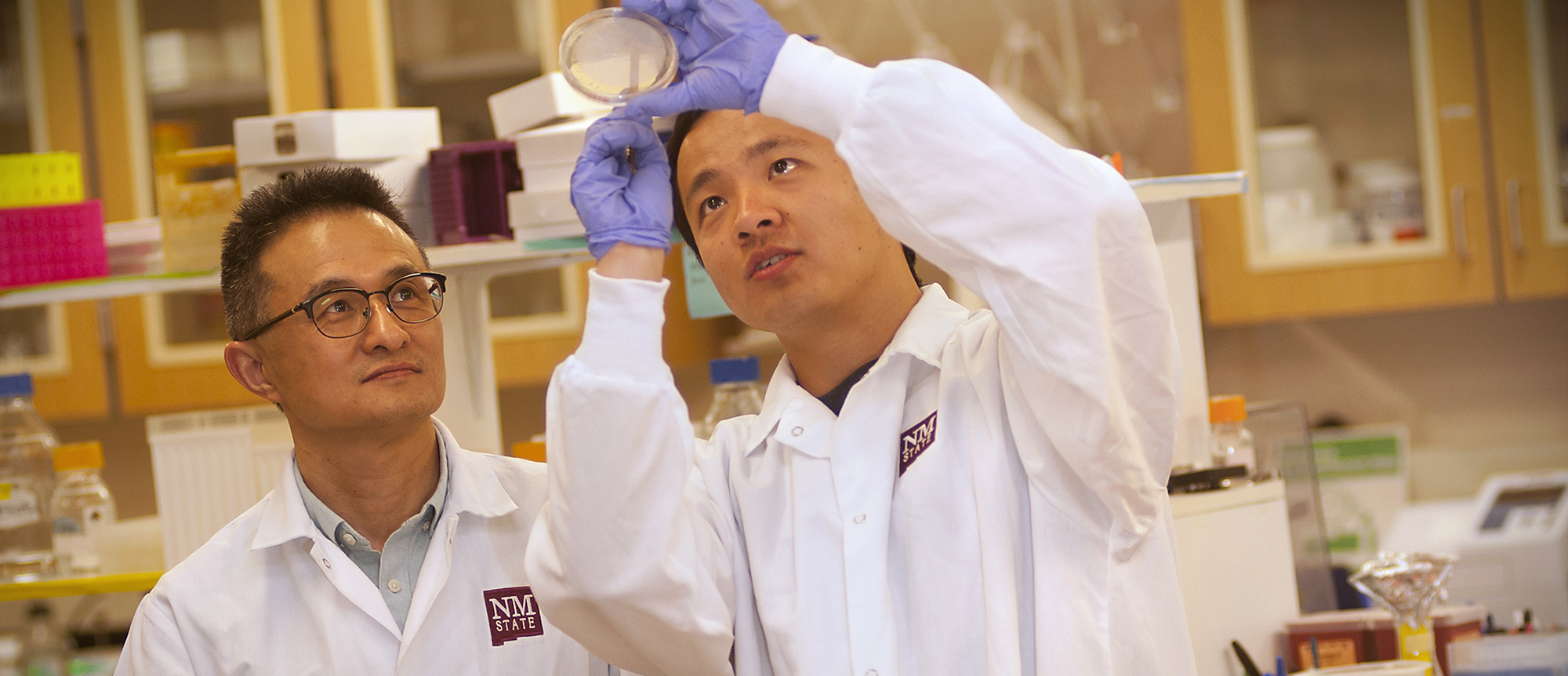
New Mexico State University
NMSU Chemical Analysis and Instrumentation Laboratory
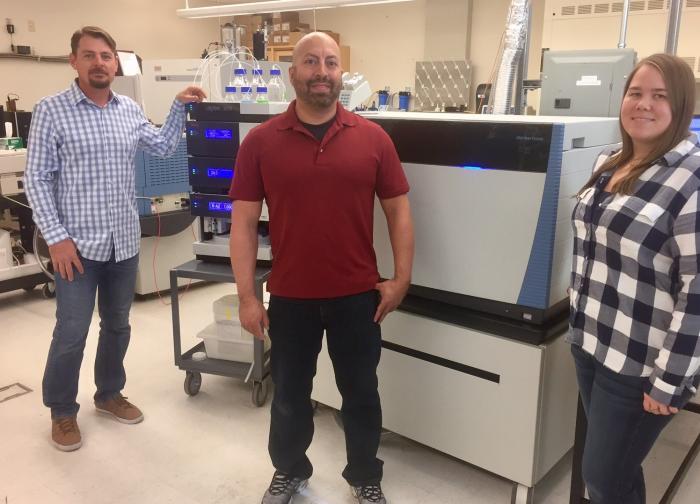
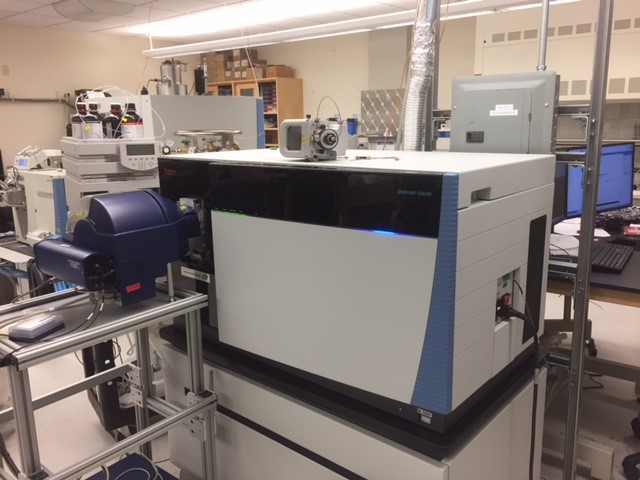
The NMSU Chemical Analysis and Instrumentation Laboratory (CAIL) is an integrated chemical instrumentation facility that specializes in the application of advanced mass spectrometry for complex mixture analysis in alternative fuels research, environmental applications, petroleum, and biological systems. The laboratory is equipped with a variety of mass spectrometers, chromatography systems and analytical equipment. Since its inception in 2008, the CAIL lab has delivered advanced mass spectrometry and chemical analyses for >60 on-campus interdisciplinary collaborations that span four colleges and eleven departments. CAIL supports student research and sustains active collaboration with three national Laboratories (PNNL, NREL, LANL) and multiple universities both nationally and internationally. The laboratory is supported by research grants and contracts and by the NMSU Agricultural Experiment Station.
Biochemistry, Energy, Environment, and Hydrology Laboratory
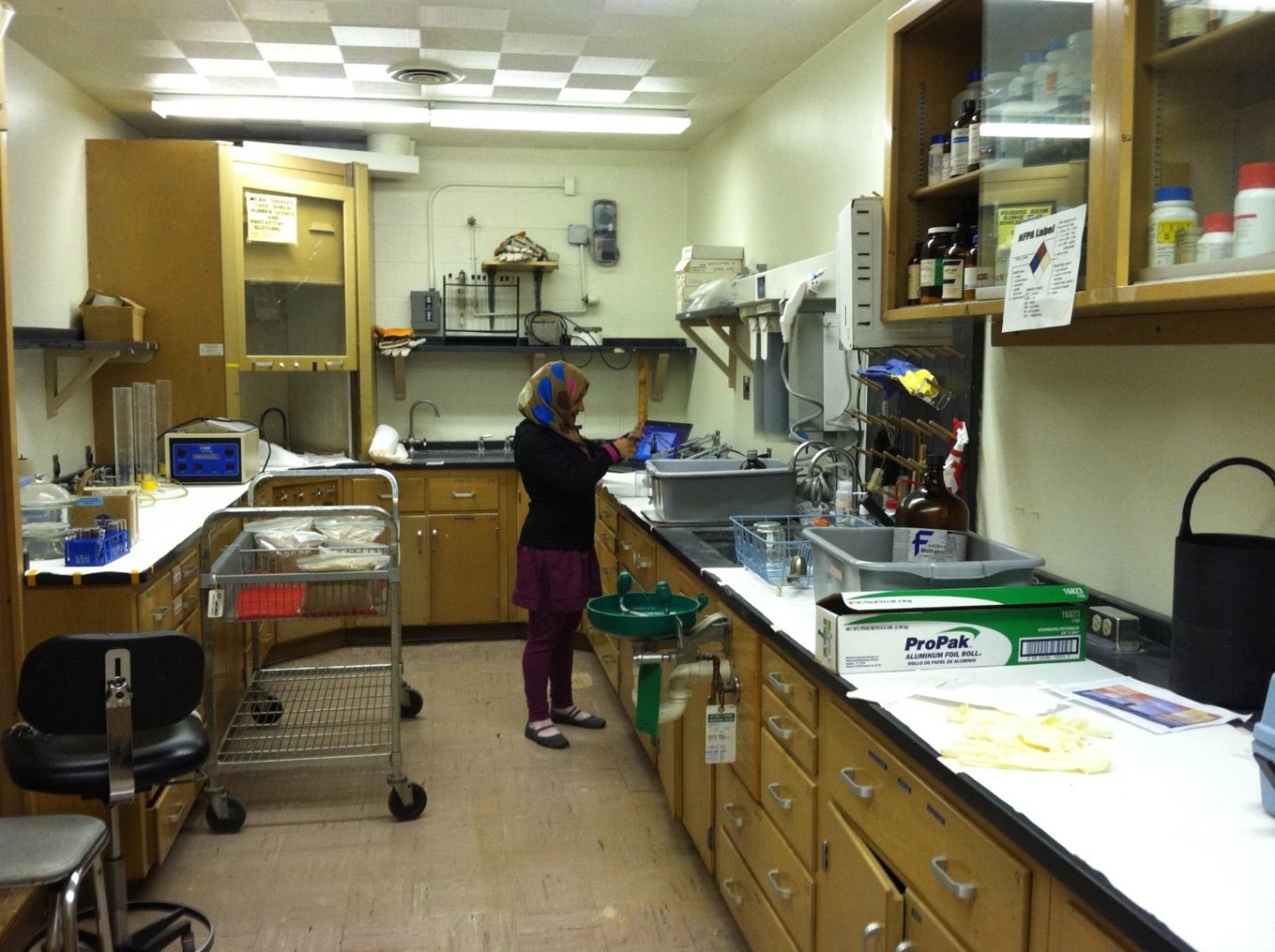
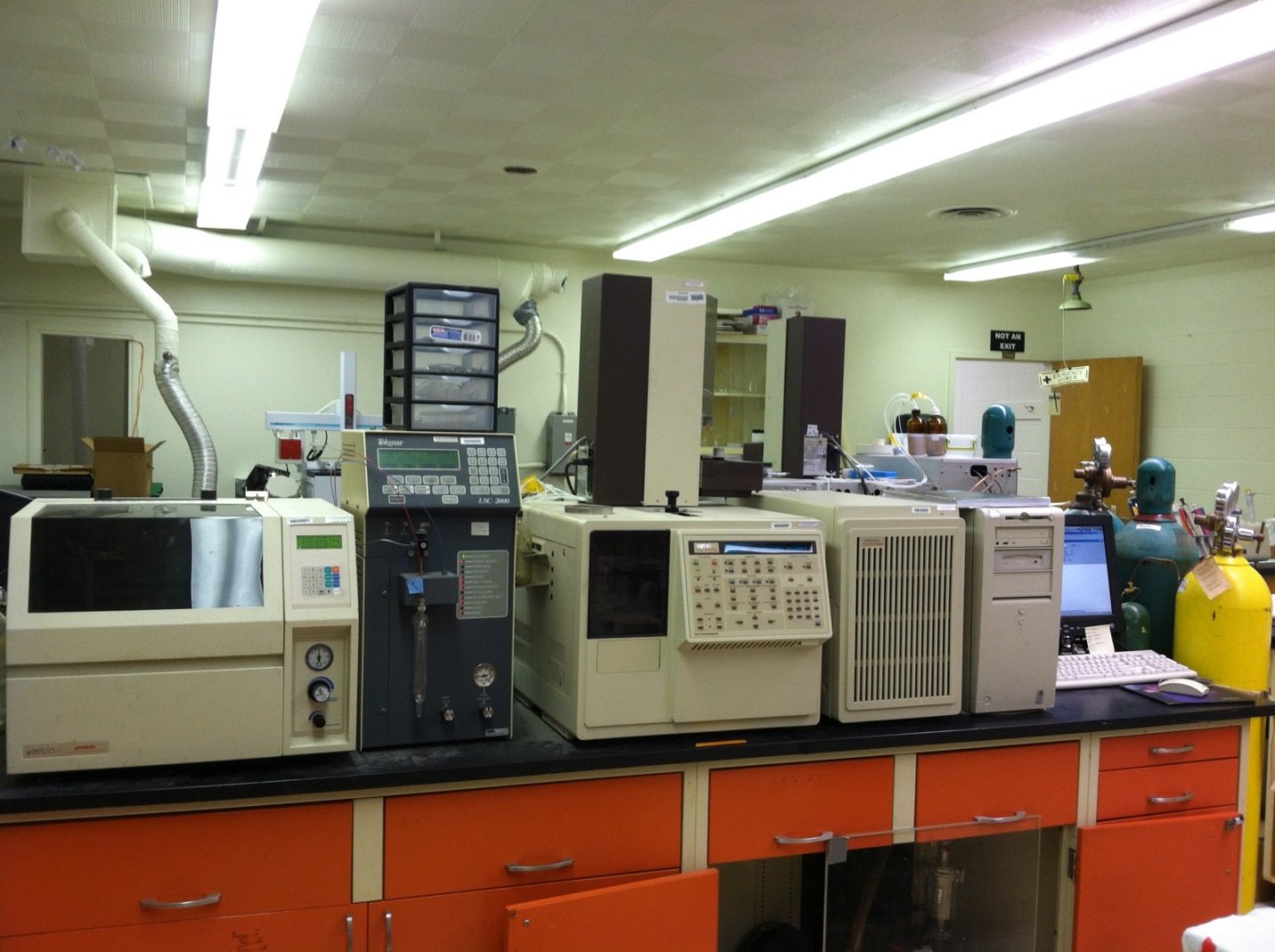
The lab is a core teaching and research lab focusing on chemical analysis. The teaching portion of the lab supports chemical analysis courses and analysis-based sections of other classes. Upon mastery of instrumental analysis through training, students may gain access to the teaching instruments for their research. The research instruments also support various research projects spanning biochemistry, proteomics, metabolomics, soil and water geochemistry, environmental science, and contaminant remediation.
New Mexico Dynamic Statewide Water Budget Modeling Laboratory


The New Mexico Dynamic Statewide Water Budget (NMDSWB) is a multiyear effort to account for the origin and fate of New Mexico’s water supply. The NMDSWB model uses a system dynamics approach to aggregate monthly water stocks and fluxes for four mass balance accounting units (MBAUs): counties, water planning regions, river basins, and statewide. The model estimates how much water moves through the stocks and fluxes of each MBAU for a historical period and into the future. The historical period of the model is based on data and modeled estimates from 1975 – 2011. The future period of the model spans from 2012 – 2100, where many of the future water stock and flux estimates are calibrated from the historical model. The future period of the model incorporates scenario options, such as various climate models, that can be altered by the user to drive the model in place of observed historical data. The historical portion of the NMDSWB is being used in an extensional model of the Lower Rio Grande, which is associated with the directed research under the NMSU/BOR Cooperative Agreement.

RETherms Lab at the New Mexico State University focuses on the following research areas with a goal of developing novel economic solutions to make energy generation, storage, and transmission more efficient. Our highly interdisciplinary research combines the fundamentals of thermal sciences, materials, and physics.
Recovery, Renewable, and Alternative Energy Systems
(a) Thermal/Thermochemical Energy Storage Technologies for Concentrating Solar Power (CSP) Plants – System Integration, Energy and Exergy Efficiency, Economic Analysis
(b) Hydrogen Storage Systems for Fuel Cells and Automobiles
(c) Water Desalination
(d) Supercritical Thermodynamic Power Cycles
(e) Low Temperature Heat Recovery and Utilization
Combined Heat and Power (CHP) Systems
Enhanced Heat Transfer Fluids, Micro/Nano Phase Change Material Slurries
Two-Fluid/Two-Phase Separation
SIRE Laboratory
SIRE Lab engages in Scholarly Inquiry, Research, and Education (SIRE) for gaining a fundamental understanding of the interactions between tailored surfaces and fluids to realize energy-efficient thermal-fluid transport at all length scales.
Thermal and fluid transport are inherent to many processes and realizing dramatic energy-efficiencies in convective transport impacts critical issues of national and international interests in energy, water, security, and health. Our research interests are in:
1. Thermal management of electronic and photonic systems: Directed energy weapons, cloud data centers, portable devices, batteries, automobiles, air/spacecraft, buildings
2. Energy systems: Energy-efficiency, thermodynamic cycles, portable/distributed power, thermal energy storage, waste heat recovery, heat exchangers
3. Space transportation: Cryocoolers, heat exchangers, propellant management
4. Scalable micro-/nano-manufacturing: Wet etching, micro-milling, nano-scale surface modification, rapid prototyping, diffusion bonding

